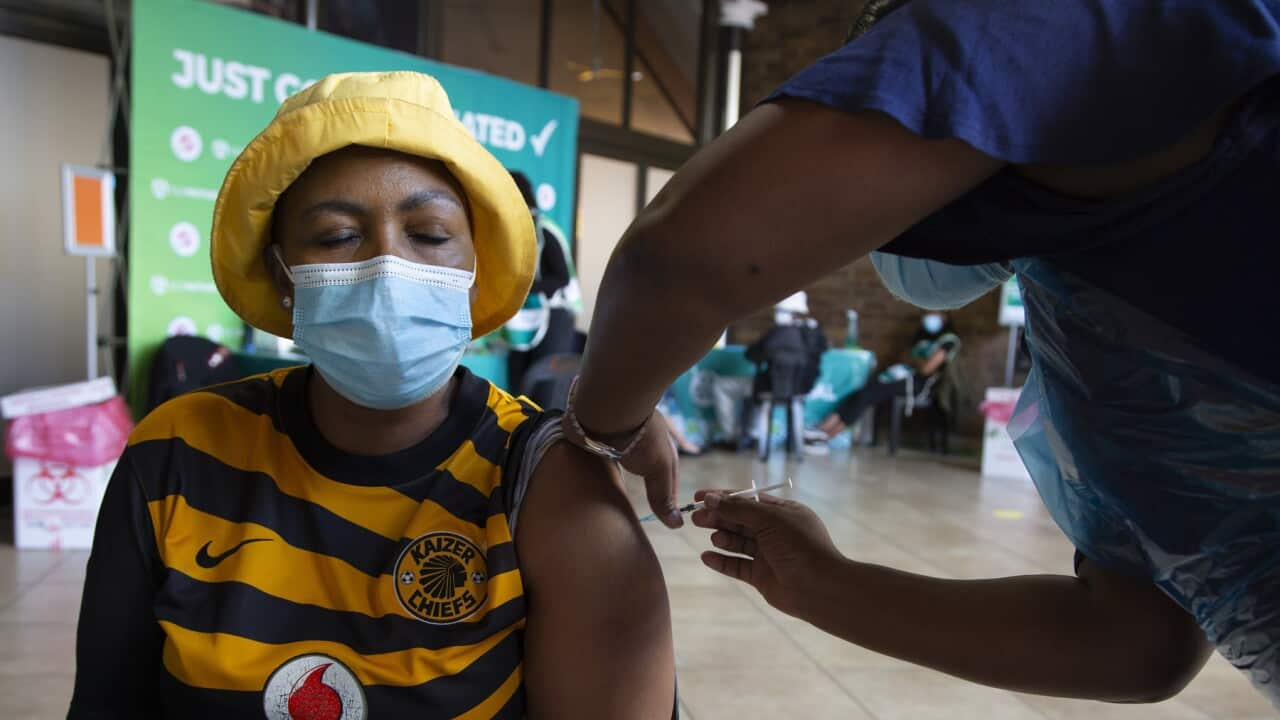The head of South Africa's ministerial advisory committee on COVID-19 says there are "promising" signs about the vaccines' ability to protect against the Omicron variant of the coronavirus.
But Professor Barry Schoub warns it is still too soon to know what the threat is like with the new variant only recently identified.
"It's still early days and I think we need to reserve judgment on that. Certainly in this early stage, the news does look to be promising. The great majority of the breakthrough infection, in other words, individuals that have had an infection despite vaccination, is mild. Our hospital surveillance is showing a little bit of an uptick, but certainly nothing as dramatic as we've seen in the previous waves. So it does portend well, but I think it still is early days. You know, we only had this virus around for just over a week, so I think we really need to watch this space."
Scientists in South Africa and around the world are performing genetic sequencing of omicron samples to learn more about it.
Cameroonian virologist and Africa C-D-C director Dr. John Nkengasong says he is "concerned" about the situation in South Africa, where omicron has now become the dominant variant of the virus.
"We are definitely very concerned with the situation in southern Africa and South Africa in particular... we saw the numbers that I discussed with you. But we are not worried that conditions, the situation cannot be managed. Remember, this will be the fourth wave that we are going through on the continent so we have become at least more prepared to deal with this wave."
Click on the player at the top of the page to listen to the feature in Punjabi.
SBS is committed to informing Australia’s diverse communities about the latest COVID-19 developments. News and information is available in 63 languages at https://www.sbs.com.au/language/coronavirus




